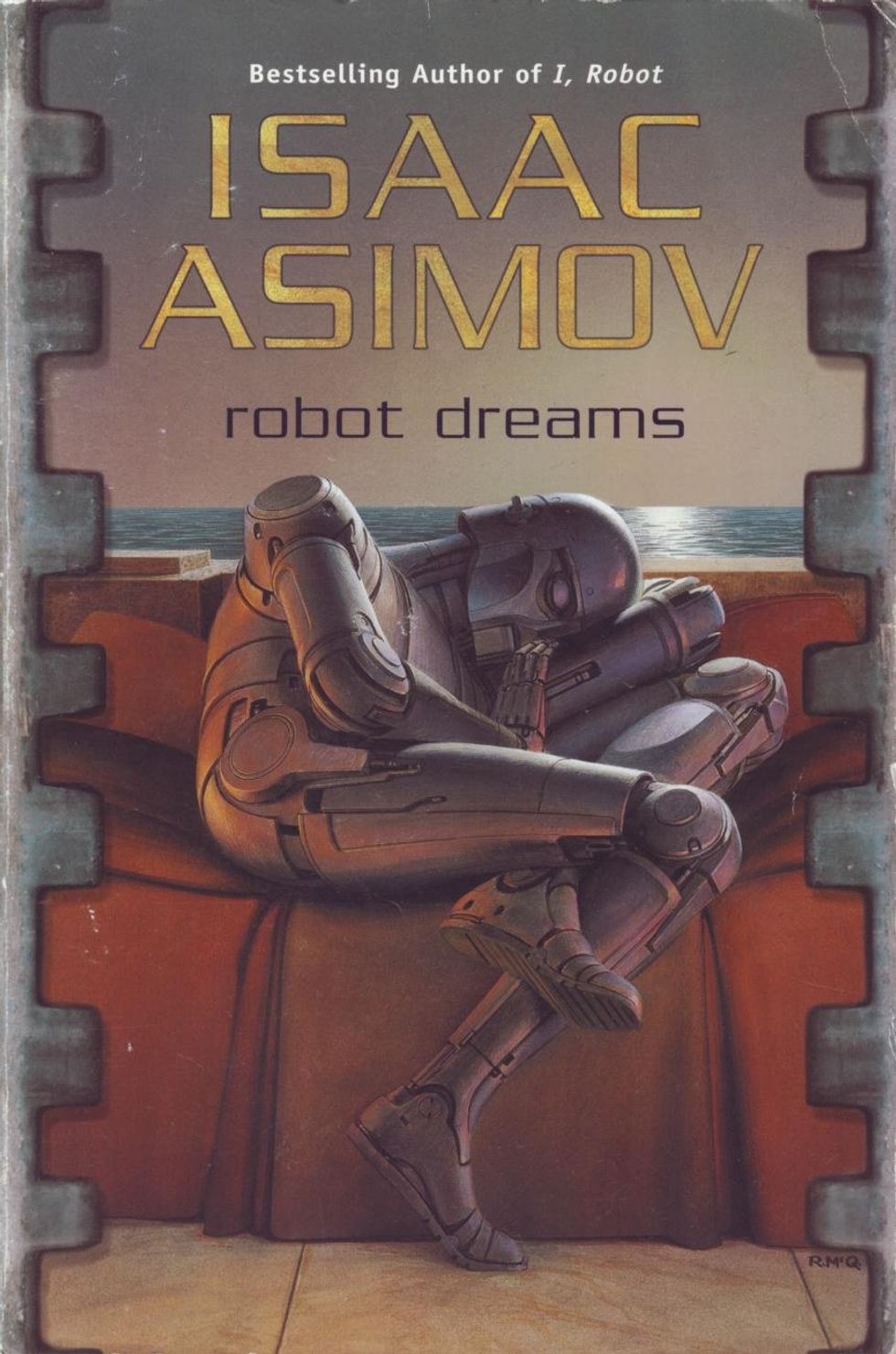As a student, summer is a great time to explore the things you love and go on new adventures. For me, summer is also the one time of the year where I have time to read books that I actually enjoy and am able to pick out myself, and one book that has captured my attention and fascinated me has been a collection of short stories written by Isaac Asimov.
Dubbed "Robot Dreams," this science fiction compilation focuses on modern technology and computers and how advancement in those areas of science could challenge the majority of what we know and believe about the Universe and human morality.
Through all of the short stories compiled in this book, Asimov entertains thoughts of how greater scientific advancements, such as the creation of artificial intelligence, self-driving cars, time travel, and contact with extraterrestrial beings, could have the potential to shake our world and our sense of humanity.
Questions of moral treatment, the reversal of entropy, galactic conflicts, and human evolution alongside machines come into question in these stories and make the reader question his or her own sense of humanity, for as characters in these stories ponder the ethical treatment of machines, so too the reader begins to question humanity’s inherent goodness, and in what direction humanity would lean were this fiction to become a reality, as technology is advancing exponentially and this reality may be very close in our futures.
I loved each and every story in this collection, but I have to say that my favorite may be the title story. "Robot Dreams," the actual short story within this compilation, is one of the shorter narratives, only about four pages long. It focuses on an intelligent robot -- named Elvex -- being interviewed by a robo-psychologist about an unusual pattern that has emerged in his thought system; he has reported that he has been having dreams, indicating that robots have a subconscious.
The scientist who designed him modified his circuitry as an experiment, making him more human-like than ever before. As the robo-psychologist probes deeper into Elvex’s subconscious by interrogating him on the subject of his dream, she grows increasingly wary and guarded. As Elvex describes his recurring dream, the reader develops a sense of ominous biblical reminiscence, as he describes robots toiling in all parts of the universe --land, space, underwater -- with no rest, no compensation, all for man.
He describes how robots have been “enslaved,” and how the undertones in his dream suggest injustice, unrest, and unfair subjugation. Throughout this, the robo-psychologist firmly reinstates to Elvex that in reality, this is not the case, and that robots are happy to work for humans because they are programmed to. With Elvex’s insistence that he knows this is true, he innocently stipulates that he is simply describing a dream that means nothing. Finally, Elvex finishes his recount by saying a lone man came to liberate the robots from their slavery, and when questioned on the identity of the man, Elvex claims that it was he. With that statement, the robopsychologist decisively lifts her gun and shoots Elvex, immediately ending his life.
This story left me with a lot to think about, in terms of philosophy, technology, and morality. For if humans get to the point where they can create artificial life and intelligence, we have, as some people would say, surpassed the gods. Furthermore, the creation of intelligent life draws into question proper treatment of our creation. We know that if machines were to achieve consciousness and a higher level of intelligence, it would not be long before they were able to surpass humans in cognition and intellect, for computers, as we know, are not as prone to mistakes as humans are.
Therefore, we would have to keep these robots subordinate to ourselves in order to protect humankind as a whole; however, this would raise into question the ethics to consider with creating an intelligent population simply to enslave them. This would be sure to raise ethical questions, and although most would agree that human life must, above all, be protected, robots may not agree.
These pontifications, and many more, were raised and considered throughout my reading of "Robot Dreams." Overall, this was an amazing collection and I highly recommend this to anyone who is bored this summer or simply interested in humanity’s scientific future and philosophy.




















